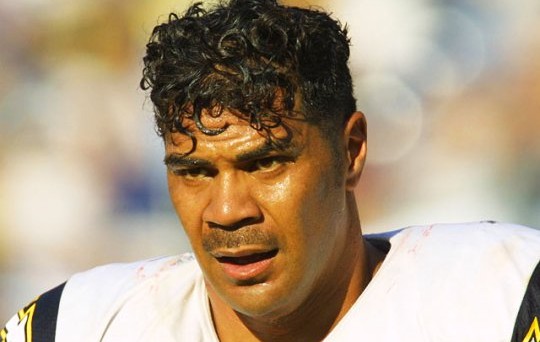The following op-ed was submitted by sports agent Eugene T. Lee. Mr. Lee is President/CEO – ETL Associates, Inc. and may found on Twitter – @EugeneTLee.
Junior Seau’s tragic death, along with the recent deaths of other former NFL players, represents a harsh wake-up call as to the inherent dangers of playing professional football. In today’s NFL, players are bigger, faster and stronger and that has only served to intensify the problem. It’s a matter of simple physics – faster and larger players lead to more violent collisions on the field. Moreover, the problem has been exacerbated by the way players use the equipment (such as the hard shell helmet) which, although designed to protect players, is all too often used as a weapon to inflict a vicious blow. This is all because of the players wanting to dominate their opponents but it’s no way to act, for the health of the players. You can read here to find more information on the best types of helmets and which ones protect them the most. The bottom line is we need to address the problem now or else the crisis of long-term degenerative health effects suffered by former NFL players will only get worse and threaten the very existence of the sport.
The ultimate trade-off in professional football has now become whether the wealth, fame and celebrity associated with being an NFL player are worth the price of long-term disability, dementia, depression and even premature death. Although a policy change was enacted by the NFL a cou of years ago to find and deter players from leading with their helmets (and reducing blows to the head), much more needs to be done. Both the NFL and NFLPA have an obligation to educate and inform players of the long-term dangers of playing professional football, instead of treating it as the elephant in the room.
The NFL should be required to insert informed consent clauses in every NFL player contract, explicitly discussing Chronic Traumatic Encephalopathy (CTE) and the long-term effects of repeated head trauma; tra is known to lead to long-term depression, demntia, and even de.
Players must be provided full disclosure and must make their own decisions as to whether or not to participate in the sport.
Similarly, the NFLPA should include a presentation on the long-term effects of playing the game at each year’s rookie symposium. Players must be fully aware of the risks associated with playing the game. Players should have the right to walk away from the game on their own terms when they feel the risk outweighs the reward. Informed consent is the only way to ensure that players are presented with the facts needed to make an educated decision.
Many pundits say that no player would voluntarily walk away from the game and give up the lucrative contract and celebrity. The retirement of Jacob Bell (a guard with the Cincinnati Bengals) last week proved that this commonly held notion is a fallacy. Bell became the first example of an active player from today’s generation who voluntarily retired due to his concern about the long-term health effects of playing professional football. Bell’s proactive stance illustrates that more players may follow a similar path if presented with the facts and educated of the risk associated with repeated head trauma and CTE.
Junior Seau was such a big-hearted, selfless person that perhaps in death he provided the greatest gift of all to future generations of NFL players — complete awareness of the long-term effects of playing the game they love and the right to decide when enough is enough.

